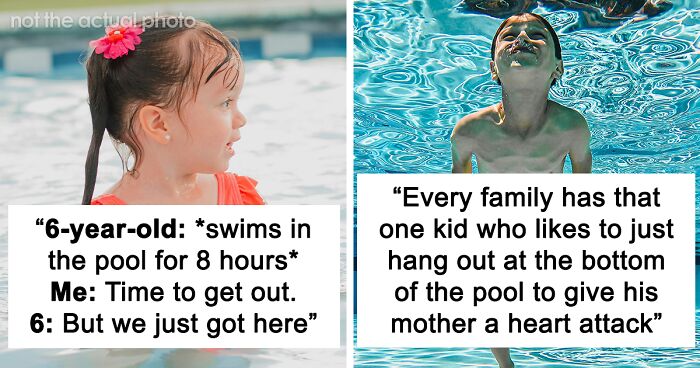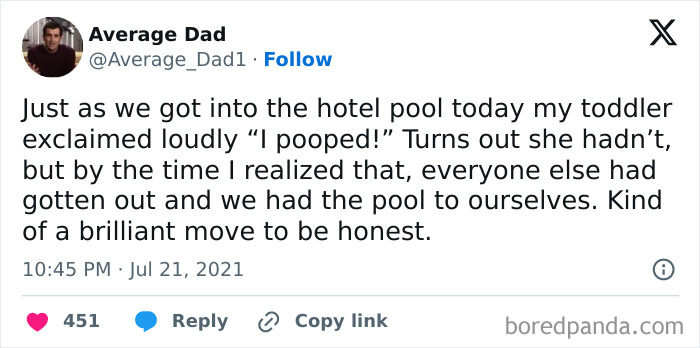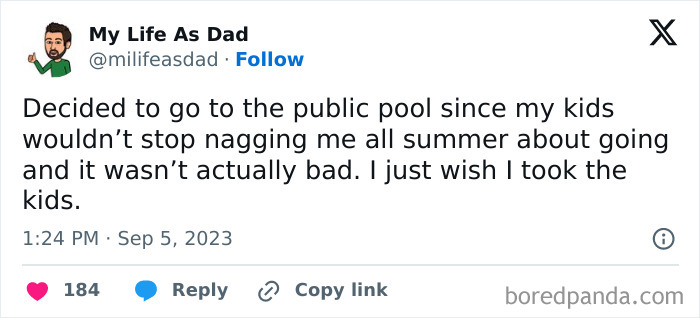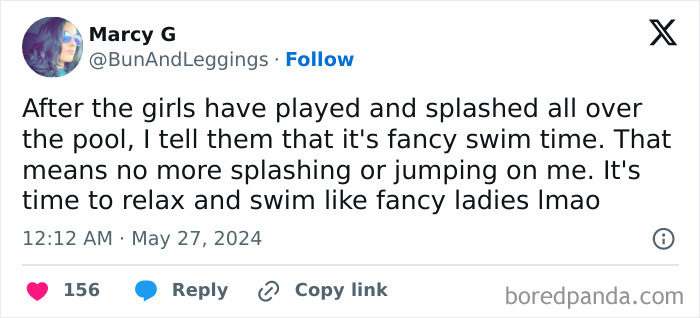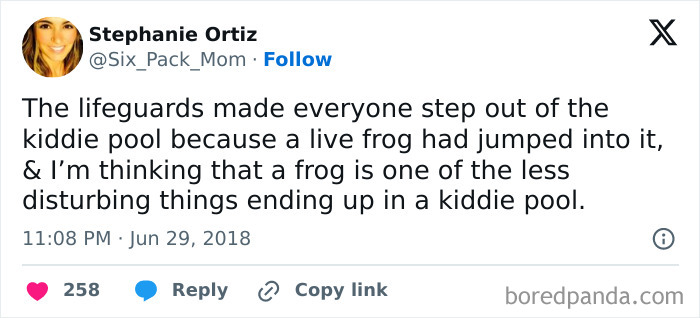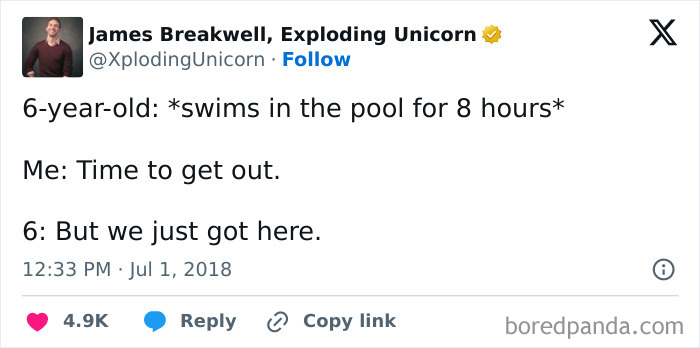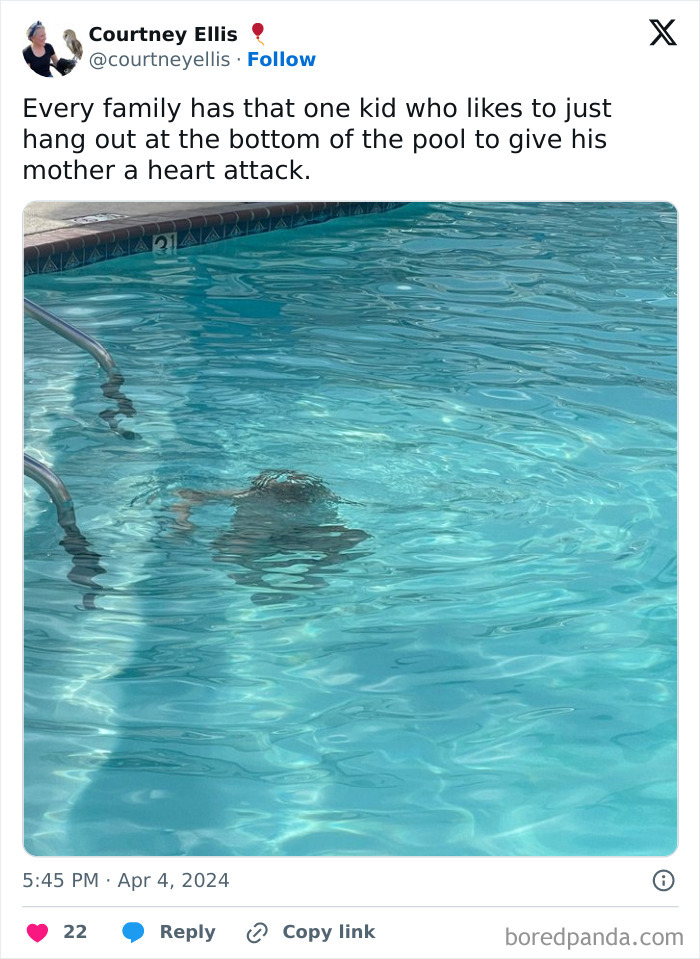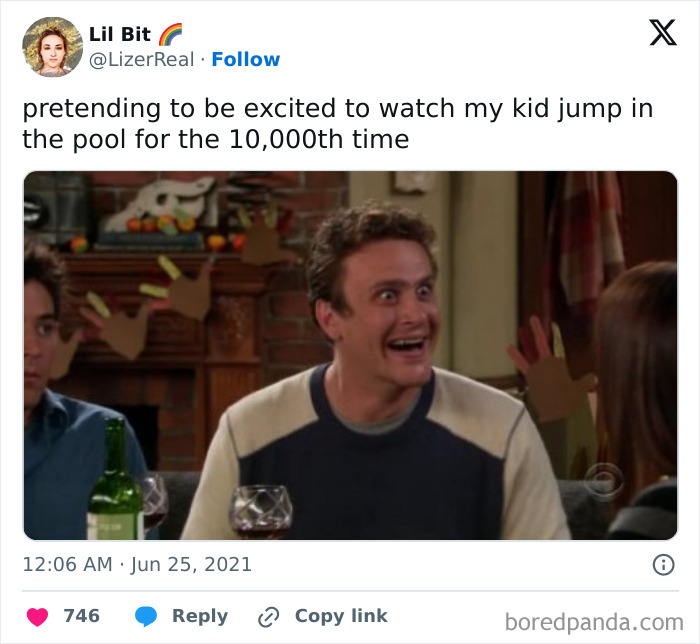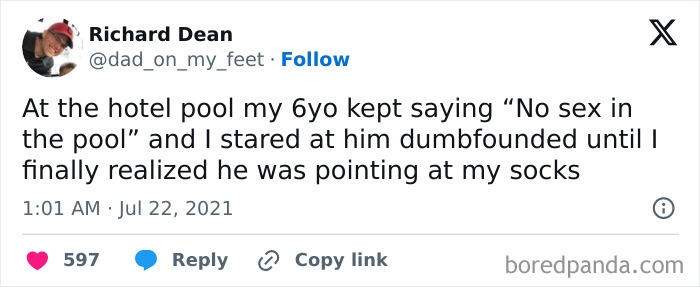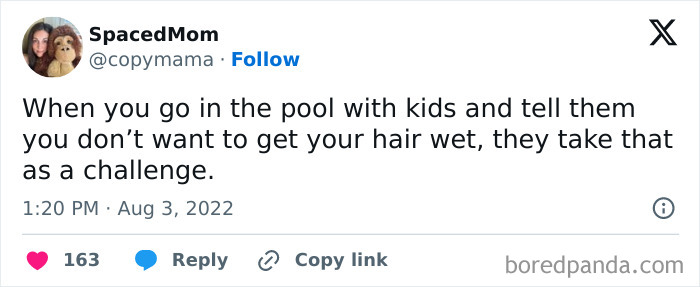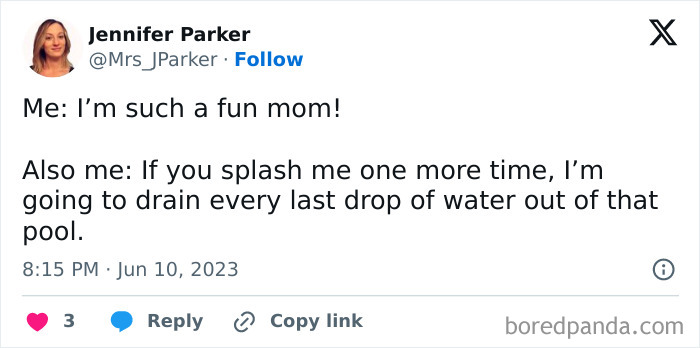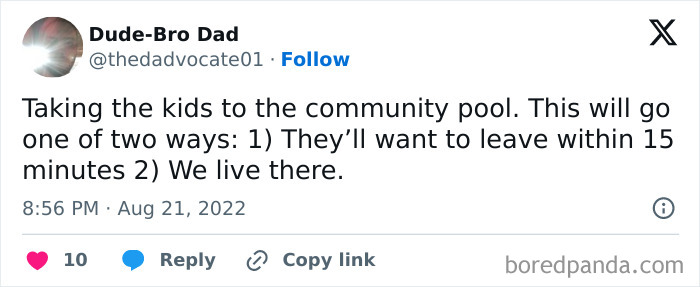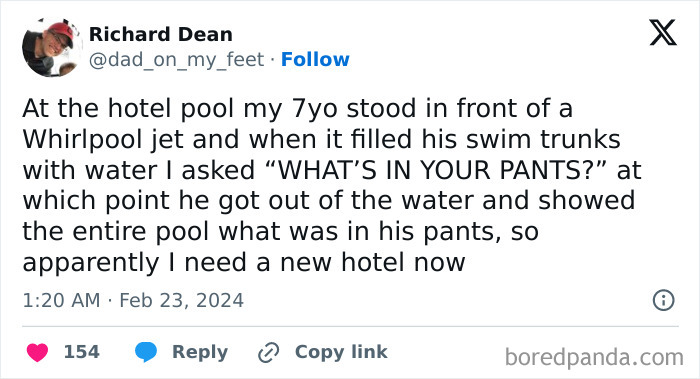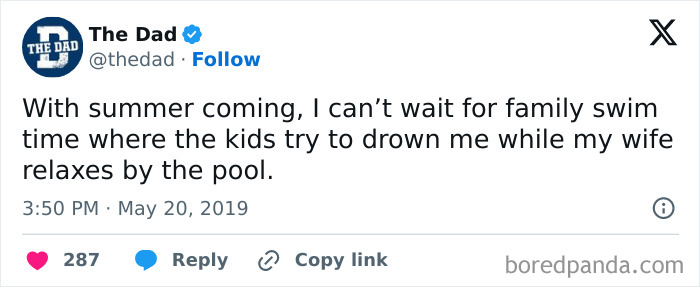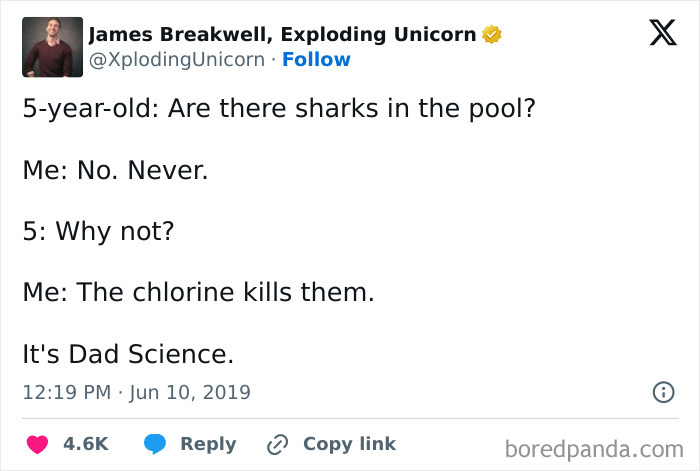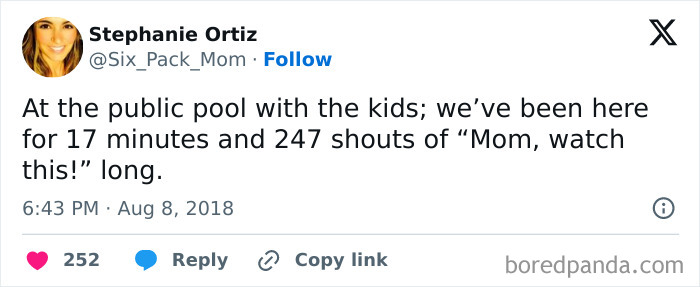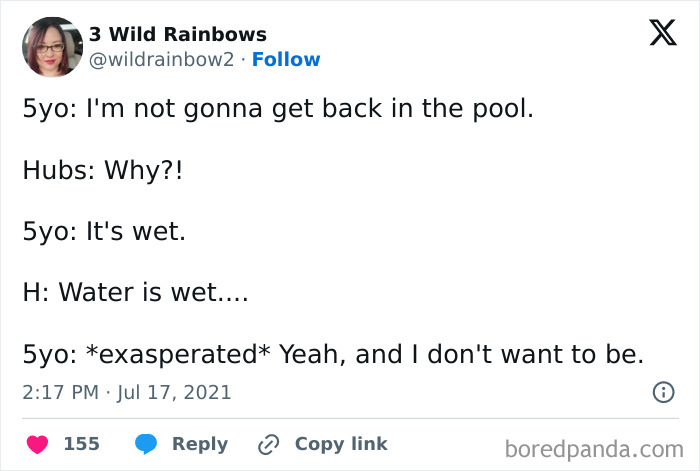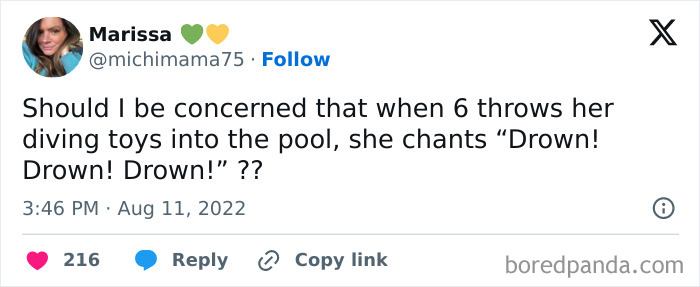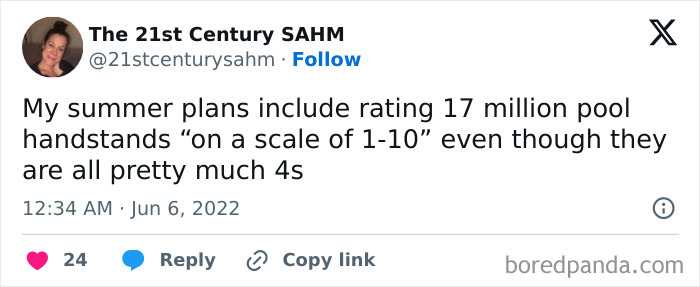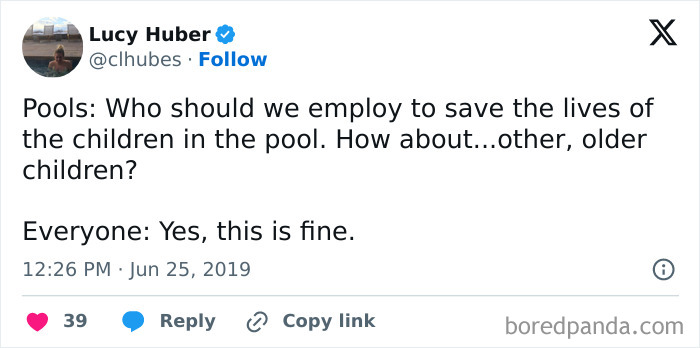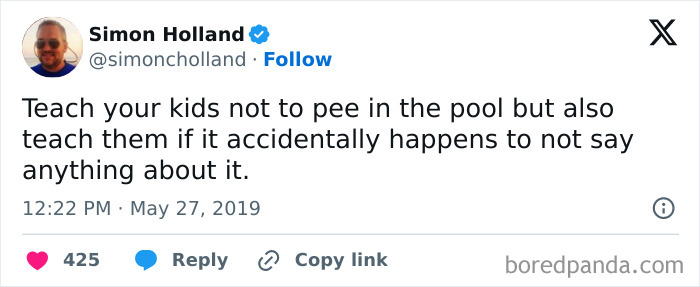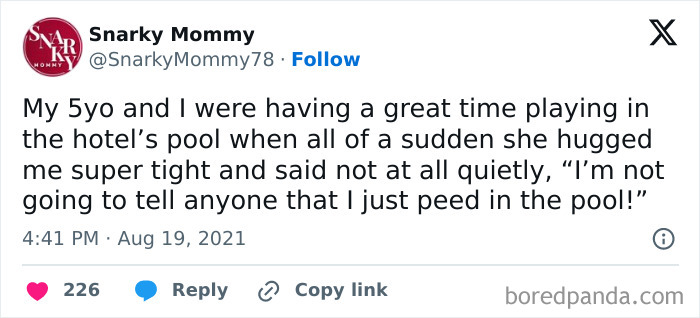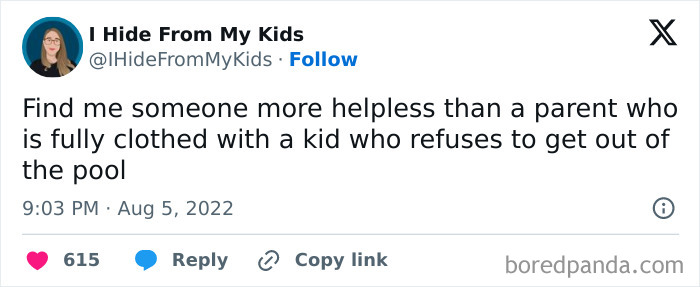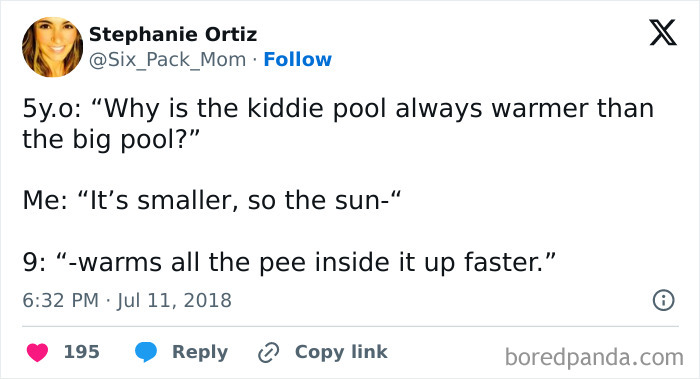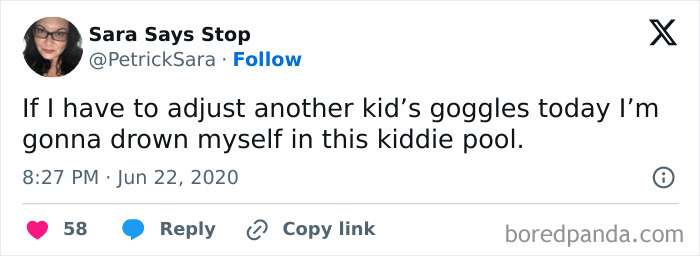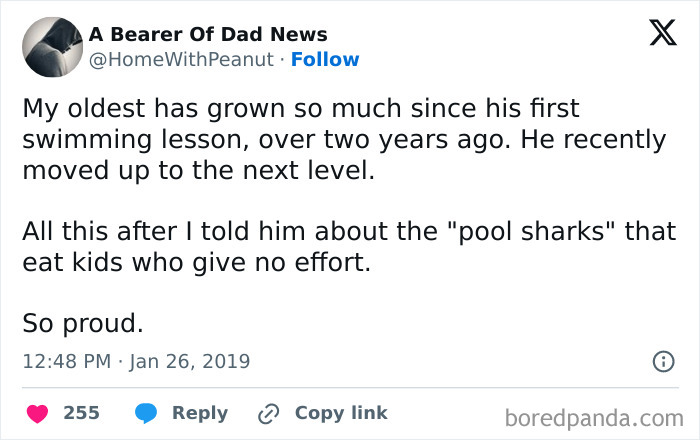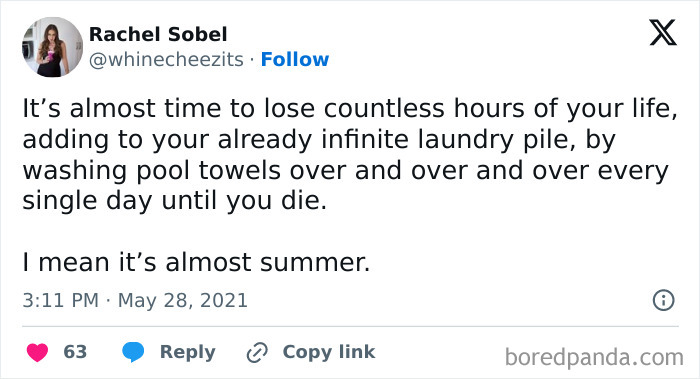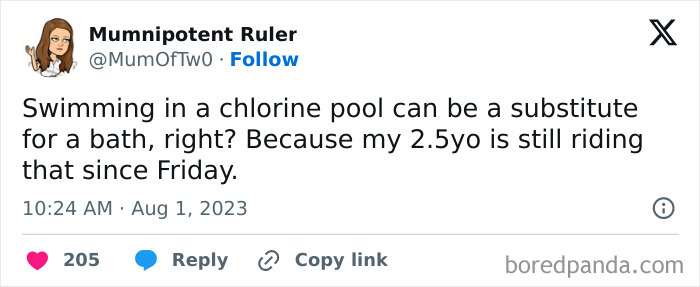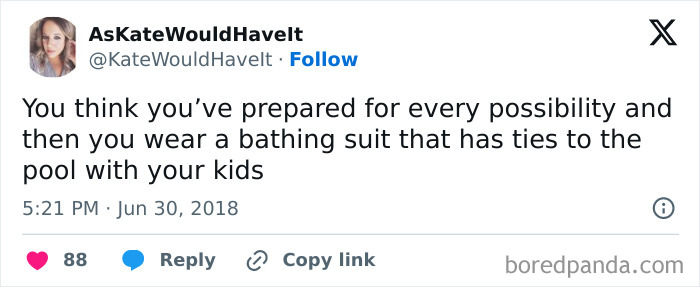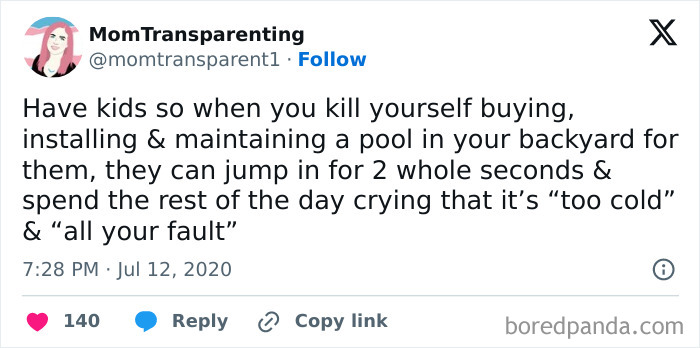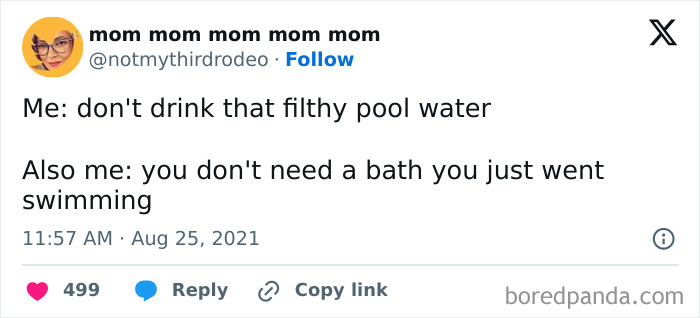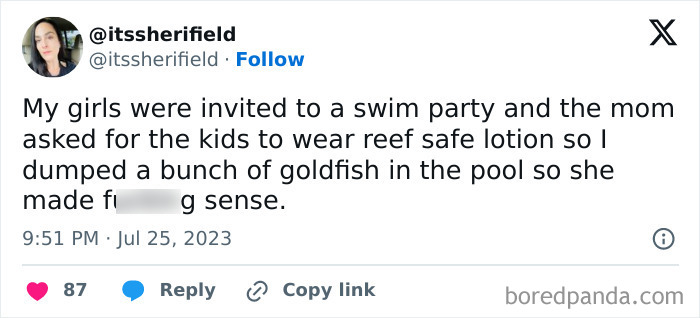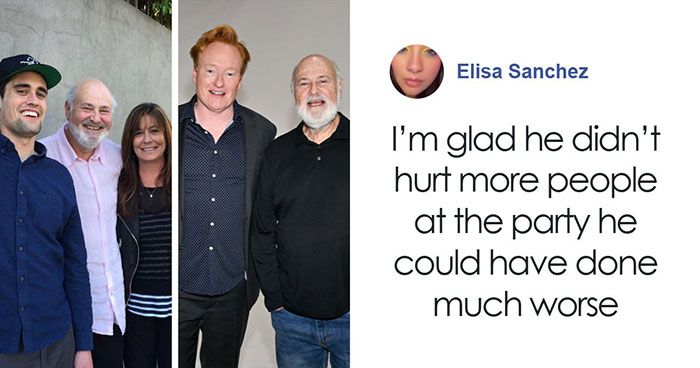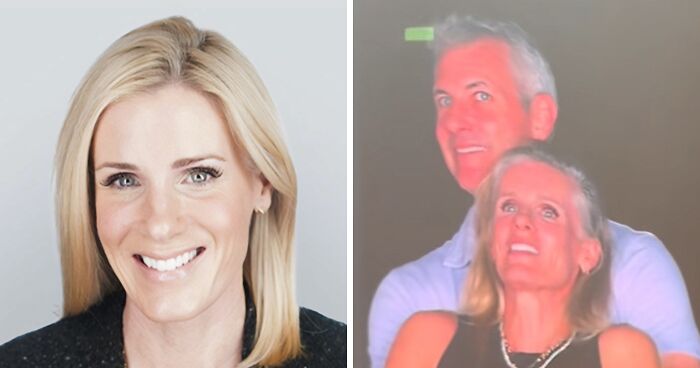There are few things more fun for a kid than a day at the swimming pool. Equipped with their floaties, toys, and the last bits of their parents’ patience, they make their way to it ready to splash everyone around them and, likely, sample some pool water, whether by accident or not.
While it’s a blast for kids, for parents, it often feels like the longest day ever. They’re on constant high alert, making sure that their child is safe, while trying to bear with the cacophony of kids yelling “Moooom!”, “Look at this”, “Are you watching??”, and that’s just the tip of the iceberg.
If you’re curious about what the rest of the ‘iceberg’ entails, you came to the right place, as today we have an entire list of parents’ tales about kids vs. swimming pools prepared for you. Depicting the good, the bad, and the ugly of pool time, these X (formerly Twitter) posts ought to make you giggle, so make yourself comfortable and enjoy! And make sure to upvote your favorites, too.
This post may include affiliate links.
Imagine this: it’s summertime; you’re walking on the hot sidewalk with ice cream in your hand and not a care in the world. You reach home and hear your parent say, “Would you like to go to the swimming pool?”
While in your 9-year-old head it probably sounds like the most foolish question—of course you want to go to the swimming pool!—you say yes, and go look for your swimming gear, ready to have the time of your life.
While going to the pool is undoubtedly a fun experience for the little ones, it can be a beneficial one, too. By frequenting said location, they can work on their swimming skills, which are very likely to come in handy later in the future.
As a matter of fact, statistics show that an overwhelming majority of people in the US believe that it’s important for kids to learn how to swim at an early age. Some studies suggest that the optimum age to begin formal swimming lessons is somewhere between 5 and 7 years of age.
When my brother and I were kids we spent every day of summer holidays at the city pool. No need to check the weather, it was always warm before the climate went nuts. First at the gate when they opened and stayed extra half hour past closing time until we got kicked out - the lifeguards knew us and graciously pretended not to see us until they were ready to lock up and go home. And it still didn’t feel like enough. Last day of pool before school started felt like the world ending.
I used to take repeated deep breaths and then float face down, I found it very relaxing. Grown ups, not so much.
Wow! So cool buddy! Now Mommy's gonna talk to Trisha for a bit, okay? Maybe Daddy wants to see your awesome tricks.
According to ValuePenguin, roughly 72% of consumers in the US have access to a pool in the summertime. However, their surveys found that close to one-in-five of Americans don’t know how to swim.
It’s no surprise that those who don’t know how to swim, don’t feel comfortable saving someone who’s struggling in the water, either, with close to 40% of respondents admitting that they wouldn't be able to help in such a situation.
To be fair, if you wear socks in the pool you probably won't get any sex.
Unfortunately, sometimes, the people who struggle in the water are children, often – those who don’t know how to swim, which is all the more reason to teach them at an early age.
According to the three-time Olympic gold medalist, Rowdy Gaines, water is a magnet for children. “But we've found a cure for drowning, and it's pretty simple,” he told Business Insider, adding that when a child learns to walk, they should learn to swim, too.
"There's a 88% reduction in risk if they take swim lessons," the swimmer said.
Face it, if you don’t wanna get splashed, you shouldn’t bring kids to the pool 😂
Well, that is very much what a 7 yo does when being asked this question.
According to Gaines, some kids are slower in learning how to move around in water, while others are natural-born swimmers. So there is no need to panic if it doesn’t seem like your kid has what it takes to become a professional swimmer; they can still learn important—sometimes even life-saving—skills.
"If you take [them] to the wrong provider, it can create fear," Gaines told Business Insider. "But if you do it the right way, your child will learn how to float on their back, which is an essential life-saving skill."
If you’re curious about where kids—and adults, likewise—are likely to find a spot to learn how to swim, Statista revealed that last year, Cleveland (OH) was the city with the largest number of public swimming pools per 100,000 residents in the US. Next on the list were Pittsburgh (PA), Cincinnati (OH), Atlanta (GA), Tucson (AZ), and Washington DC, respectively.
As for where the best swim cities in the US are, Ann Arbor (MI), San Jose-Sunnyvale-Santa Clara (CA), Raleigh-Durham (NC), Bridgeport-Stamford-Norwalk (CT), and San Francisco-Oakland-Fremont, (CA) were reportedly highest on the list.
Nahhh, if she screams, "Next time I will cut you", I would consider outside help.
That's why we get my 2 year old niece to rate them. The 8 and 10 year old try to impress her and she yells out whatever number she just remembered in no particular order.
Well we sure as hell can't rely on anyone old enough to have been to a dermatologist and gotten a biopsy.
Did anyone else read "watch this" in the voice of James May or Jeremy Clarkson and then hear the sound of something going wrong?
I feel this one lol. I finally gave up and bought nicer goggles with quick release buckles on the back. Saves me (and them) so much frustration.
Question : where does the pool water go after being changed? Doesn't waste go in the oceans afterward?
I'm not a parent but I babysit for 2 kids and one time we went swimming. They decided to play "drowning" where they scream "(TOASTED APPLESAUCE) I'M DROWNINGGGG" and I have to save them. They wear life jackets so obviously they are fine but the looks I get are not fun.
I'm not a parent but I babysit for 2 kids and one time we went swimming. They decided to play "drowning" where they scream "(TOASTED APPLESAUCE) I'M DROWNINGGGG" and I have to save them. They wear life jackets so obviously they are fine but the looks I get are not fun.

 Dark Mode
Dark Mode 

 No fees, cancel anytime
No fees, cancel anytime 






